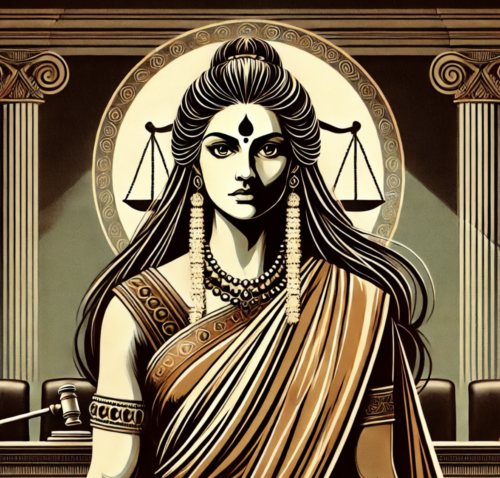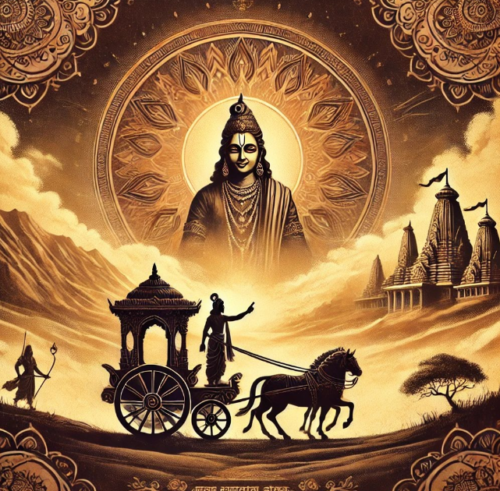The Mahabharata, an ancient Indian epic, is a profound source of wisdom that delves deeply into the dynamics of human behavior, ethics, and justice. Among its many teachings, the values of inclusivity and fairness stand out as essential principles for building harmonious societies. In today’s fast-paced, interconnected world, these lessons from the Mahabharata remain highly relevant for fostering equality and justice in personal, professional, and societal contexts.
Inclusivity and Fairness in the Mahabharata
The Pandavas’ Leadership demonstrates the significance of inclusivity and fairness. Despite being exiled to the forest and enduring immense hardships, the Pandavas always upheld their dharma (righteous duty) and embraced people from various walks of life. Their inclusivity is evident in their alliances with diverse kings, tribes, and communities, such as the Rakshasa Ghatotkacha and the Nagas. This approach not only strengthened their position but also ensured unity among their allies.
In contrast, Duryodhana’s Exclusivity and unfair practices highlight the consequences of divisive behavior. His refusal to give the Pandavas even a needlepoint of land led to the devastating war of Kurukshetra. Duryodhana’s actions serve as a reminder that exclusivity and injustice breed conflict and destruction.
Lessons for Modern Life
The Value of Inclusivity in Leadership Inclusivity strengthens teams and communities. The Pandavas’ willingness to collaborate with diverse groups highlights the importance of embracing different perspectives and talents. In modern workplaces, inclusive leaders create environments where everyone feels valued, fostering innovation and trust.
Fairness as the Foundation of Justice Yudhishthira, the eldest Pandava, symbolizes fairness. His adherence to truth and justice, even under challenging circumstances, teaches us that fairness should never be compromised. In today’s legal and governance systems, fairness ensures stability and promotes trust among people.
Consequences of Bias and Exclusivity Duryodhana’s favoritism towards his allies and exclusion of the Pandavas underscore the dangers of bias. Exclusivity leads to resentment and conflict, as seen in many modern societal and workplace disputes. Striving for equity and fairness can help resolve such issues.
Empathy and Inclusion Build Stronger Bonds Krishna’s role as a mediator exemplifies the power of empathy and inclusion. He sought to prevent the war by offering Duryodhana opportunities to resolve conflicts fairly. Modern leaders and individuals can learn to resolve disputes by prioritizing dialogue and understanding.
Inclusivity Encourages Growth and Collaboration The alliances the Pandavas formed highlight the benefits of diversity and mutual respect. By working with individuals of varied backgrounds, they created a cohesive and effective team. In contemporary life, inclusivity encourages collaboration and drives progress, whether in families, workplaces, or communities.
Equality Strengthens Societies The Mahabharata emphasizes the importance of treating everyone equally, regardless of status or position. Bhishma’s failure to address the injustices faced by Draupadi demonstrates how neglecting equality can destabilize relationships and societies. Ensuring equal opportunities for all is a cornerstone of a fair and prosperous society.
Applying These Lessons Today
Incorporating the principles of inclusivity and fairness into daily life can lead to healthier relationships and more cohesive communities. For instance:
- In professional settings, inclusive hiring practices and equitable treatment of employees foster a sense of belonging and enhance productivity.
- In personal relationships, treating all family members with fairness and respect strengthens bonds.
- At a societal level, promoting policies that ensure equal access to resources and opportunities helps create a more just and harmonious world.
The Mahabharata’s lessons on inclusivity and fairness provide timeless guidance for addressing the complexities of modern life. By embracing these principles, we can build a world where unity, empathy, and justice prevail, creating an environment that benefits all.
Stay connected with us at www.theknowledgenexus.in for more profound insights, timeless wisdom, and practical lessons
Disclaimer:
The content on this website is intended for informational purposes only, offering insights derived from the Mahabharata, Ramayana, and Bhagavad Gita. Interpretations may vary as these are deeply subjective matters and may be viewed differently across cultures and perspectives.






2 thoughts on “Lessons on Inclusivity and Fairness from the Mahabharata for Modern Life”